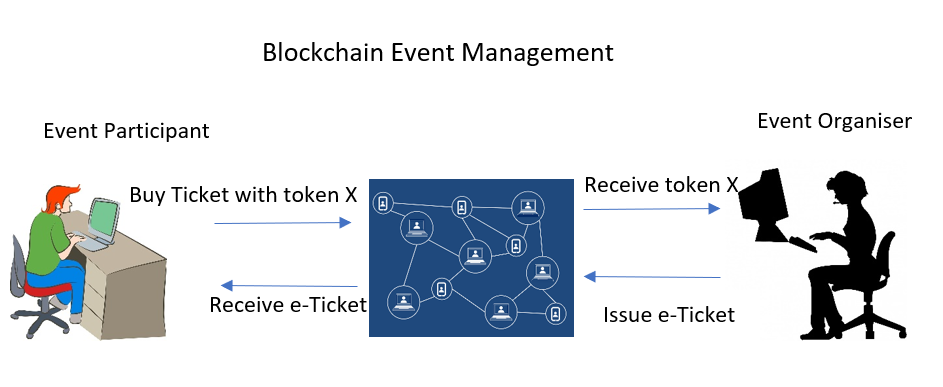Cryptocurrency is a new asset class derived from nascent blockchain technology. Its phenomenal growth in recent years has attracted many investors who used to invest in traditional financial products to start investing in crypto assets. Reports have shown that there is a significant amount of capital flowing into the crypto market. This capital flow has created an increasing demand for new financial products that cater to the needs of the crypto market.
Indeed, cryptocurrencies are rapidly gaining traction with the general public. According to CoinMarketCap, the total market cap for all cryptocurrencies reached an amazing $739 billion in January 2018. Though the market cap dropped to a low $113 billion in December 2018 due to the bear market, it rebounded strongly in 2019 to a figure between $250 billion to $350 billion. Though much of this value has been generated by individual traders, it is also largely the result of large investment funds. These crypto fund management companies, which hold crypto assets worth as much as $1 billion or more, are the whales of the cryptocurrency community.
Generally, the trading of crypto assets is performed on exchanges. Most crypto investors keep and manage their crypto assets on exchanges, cold storage, mobile wallets, desktop wallets, hardware wallets, and more. The aforementioned complex management process that requires sophisticated skills makes it extremely difficult for individuals to manage a diverse crypto portfolio.
Fortunately, a dozen crypto fund management companies have emerged with products and services that could help ease the tedious investment process in crypto investment. One of the most popular ones is the use of index funds to automate the process of investing in crypto assets for individuals, using AI algorithms. Another crypto financial product on the rise is the crypto hedge fund which caters only to high net worth individuals.
Indeed, crypto investment tools and products such as crypto index funds, automated trading with rebalancing, and tracking are becoming ubiquitous. Crypto index funds provide an opportunity for investors to build their own portfolio or track an index and reap profits from this new and volatile asset class.
Despite the potential issues, it’s encouraging that crypto hedge funds seem to have performed reasonably well even during bear markets. And with the majority of crypto funds in the index now employing external auditors, custodian services and fund administrators, the industry is becoming less risky. Although the crypto fund industry is still very much in a nascent stage, crypto funds could present institutions and individuals with an attractive way to invest in this sector.
Let’s examine some index funds in the crypto market.
Bitwise 10 Private Index Fund
The Bitwise 10 Private Index Fund is the world’s first crypto asset index fund. It seeks to track the Bitwise 10 Large Cap Crypto Index (“Bitwise 10 Index”), which selects the 10 largest crypto assets based on criteria including 5-year diluted market capitalization, trade volume minimums, concentration limits, and compliance. The portfolio is rebalanced monthly. Assets are held in 100% cold storage, audited annually, and purchased across several liquidity providers to seek best execution. Bitwise actively evaluates network opportunities including hard forks, airdrops, emissions, staking rewards, super- and master-node rewards, and captures available benefits for fund investors where appropriate.
Bitwise is a crypto asset manager founded in 2017. The firm has a large software team, with backgrounds across Google, Facebook, Wealthfront, and military software security, which we believe is essential for navigating the space. Bitwise has been covered by CNBC, Forbes, Bloomberg, Barron’s, WSJ, Coindesk, and others, and is active in the crypto asset community
BITWISE 10 INDEX COMPONENTS
| Bitcoin | BTC | 77.8% |
| Ethereum | ETH | 8.5% |
| Ripple | XRP | 6.0% |
| Bitcoin Cash | BCH | 2.4% |
| Stellar Lumens | XLM | 0.6% |
| Litecoin | LTC | 1.9% |
| EOS | EOS | 1.4% |
| Monero | XMR | 0.5% |
| Cardano | ADA | 0.4% |
| DASH | DASH | 0.4% |
Crypto20
Crypto20 claims to be the first tokenized index crypto index fund in the world. Their motto is autonomous ‘token-as-a-fund’.
In 2017, their team successfully pioneered the first tokenized crypto-only index fund, which used the seed funding to buy the underlying crypto assets. There are no broker fees, no exit fees, no minimum investment and full control over your assets.
Crypto20 provides a way to track the performance of the crypto markets as a whole by holding a single crypto asset. They claimed that their index funds have consistently beaten the average managed fund since their inception.
Learn more about Crypto20 from their whitepaper.
Alternatively, you can look into more accessible funds that don’t require heavy investment. Let’s take a look at the following funds:
Coinbase
The Coinbase Bundle offers a one-click purchase for the first five cryptocurrencies that were listed on Coinbase, which are weighted by market cap at the time of purchase.
- Bitcoin — 76.59%
- Ethereum — 15.84%
- Litecoin — 3.94%
- Bitcoin Cash — 3.11%
- Ethereum Classic — 0.52%
This retail-aimed product allows users to invest as little as $25 in the basket of crypto assets.
Hodlbot
HodlBot is a customizable cryptocurrency trading bot that enables users to index the market, create custom portfolios, and automatically rebalance their cryptocurrency portfolios.
HodlBot allows you to grow your portfolio like the world’s most sophisticated investors. They are making institutional portfolio management software available to everyone. Best of all, HodlBot is free forever for account values under $500. Otherwise, it’s $10/month with a 7-day free trial.
In short, crypto index funds are a fast-growing alternative financial product that is currently outperforming the stock markets and other traditional financial products. Though it is still riskier than traditional investments, it is worth venturing into this market to grow your capital.
References
- https://coinsutra.com/best-cryptocurrency-index-funds/
- https://coinsutra.com/crypto-portfolio-rebalancing-tools/
- https://www.investopedia.com/terms/r/rebalancing.asp
- https://media.consensys.net/a-primer-on-crypto-index-funds-8d1f88fcafe8
- https://www.bitwiseinvestments.com/funds/Bitwise-10
- https://medium.com/hackernoon/what-you-didnt-know-about-crypto-hedge-funds-part-1-209b9d9215a7
- https://grayscale.co/digital-large-cap/#market-performance
- https://www.digitalassetindexfund.com/
- https://www.bloomberg.com/professional/product/indices/bloomberg-galaxy-crypto-index/
- https://www.hodlbot.io/
- https://cointelegraph.com/news/biggest-crypto-hedge-funds-and-what-they-tell-about-the-market
